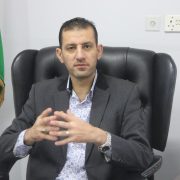Unicef has inspired a Learning Passport covering entire primary and secondary curriculum so children continue formal education. The Learning Passport platform has been hailed by many as a demonstration of the power of partnerships to drive forward the education agenda in Zimbabwe and beyond.
Speaking on the launch, Kate Behncken, Vice President and Lead of Microsoft Philanthropies explained the idea behind the Learning Passport: “If young people are on the move, their education should be on the move with them. And this creates an opportunity for young people to continue their studies regardless of their location, or where they are on their education journey.”
Despite the digital divide in Zimbabwe that is caused by various factors, chief among them, the cost of bandwidth, the platform has connectivity settings that are access friendly. With the Learning Passport, a learner has the ability to access hundreds of prerecorded radio lessons. These lessons can be downloaded on the dedicated Android Mobile application and then be played later offline in areas in communities or settings where there is less or no connectivity at all.
This makes a smartphone or tablet a repository of hundreds of hours of learning ready to be played so that children continue to learn anywhere and at any time.
Providing a learning solution for millions of in and out of school children in Zimbabwe
Since the start of the pandemic, Zimbabwe has followed a phased approach to school closing and reopening. Schools were fully closed for face to face learning from March to Mid-September 2020, partially reopened from Mid Sept-Oct and then fully reopened again from Nov-Dec 2020. From Jan 2021 to March 2021 schools were partially reopened but they are now fully open since beginning of April 2021.
In the face of the pandemic and during the whole of 2020, the country has been developing alternative ways to ensure continuity of learning. In the first months of the pandemic, this meant broadcasting lessons on the radio. This proved effective but once the lessons were played, there was no digital library to allow students to access these radio lessons later.
The Ministry of Primary and Secondary Education (MOPSE) together with UNICEF embraced the opportunity to accelerate digital-assisted learning. Through an active collaboration, and regular engagement, the Ministry of Primary and Secondary Education, Microsoft and UNICEF built the Learning Passport Zimbabwe. The Education Technology platform was officially launched in March 2021 with a goal of reaching 300,000 learners by end of 2021.
After Puntland in Somalia, Zimbabwe is now the second country in Africa to launch the Learning Passport, enabling children across the country to access high-quality courses and learning resources in and out of schools.









Comments